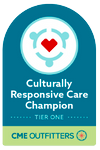What Is a Mood Disorder?
A mood disorder is a mental health condition where an individual’s emotions swing to extremes. They might feel down for a long time (depression) or super high and energetic (mania). These mood swings can make handling everyday responsibilities really difficult.
What Are Different Kinds of Mood Disorder?
Bipolar Disorder (Bipolar I Disorder)
Bipolar disorder is a mood disorder condition that is defined by extreme mood changes, alternating between periods of high energy (mania or hypomania) and low mood (depression). These fluctuations, varying in intensity and duration, profoundly affect individuals’ ability to manage their daily tasks.
Cyclothymia(Bipolar II Disorder)
Cyclothymia is a mood disorder characterized by chronic fluctuations in mood, involving periods of hypomanic symptoms and periods of depressive symptoms. These mood swings are less severe than those in bipolar disorder but still disrupt daily functioning and quality of life.
Major Depressive Disorder (MDD)
Major depressive disorder (MDD) involves persistent and intense feelings of sadness, emptiness, or hopelessness, negatively impacting an individual’s mood.
Disruptive Mood Dysregulation Disorder
Disruptive mood dysregulation disorder (DMDD) is also a mental problem that can be found in children and adolescents, characterized by severe temper outbursts and persistent irritability. These symptoms impair functioning at home, school, and with peers. It was introduced to address concerns about overdiagnosis of bipolar disorder in children displaying chronic irritability and temper outbursts.

Mania
Mania is another mood disorder where someone feels extremely energetic and excited, often to a point where it’s hard to control their emotions and actions.
Hypomania
Hypomania is a milder form of intense excitement and energy compared to full-blown mania. While individuals in a hypomanic state still experience heightened energy and happiness, they can typically maintain better control over their actions and responsibilities than during a full manic episode.
Dysthymia
Dysthymia, also known as persistent depressive disorder (PDD), is a long-term type of depression. It involves feelings of sadness and low energy.
Seasonal Affective Disorder (SAD)
Seasonal Affective Disorder (SAD) is a type of depression that comes and goes with the seasons, often peaking during winter, and is characterized by feelings of low mood and energy.
Atypical Depression
Atypical depression is characterized by symptoms such as mood reactivity, exemplified by mood brightening in response to positive events.
Postpartum Depression
Postpartum depression mood disorder affects women after childbirth; it’s usually marked by feelings of sadness, irritability, and challenges in bonding with the newborn baby.
Premenstrual Dysphoric Disorder
Premenstrual dysphoric disorder (PMDD) is a more severe version of premenstrual syndrome (PMS). Its symptoms can make it hard to manage everyday activities.
Depression Related to Other Medical Conditions (Secondary Depression)
Secondary depression, also called depression related to other medical conditions, happens when someone experiences depressive symptoms because of other health problems like chronic illnesses, neurological disorders, or hormonal imbalances.

What Factors Can Cause Mood Disorders?
Mood disorders are complicated medical conditions with multiple root causes, such as:
Biological Factors
Mood disorders often involve problems with brain chemistry and how certain chemicals, like serotonin, dopamine, and norepinephrine, work in the brain. Sometimes, these issues can run in families, suggesting a genetic link.
Medical Conditions
Some medical conditions, such as chronic illnesses such as cancer, diabetes, neurological disorders like Alzheimer or hormonal imbalances can lead to mood disturbances.
Stressful Life Events
Trauma, abuse, loss, or significant changes in life circumstances can also trigger or exacerbate mood disorders.
What Are Different Mood Disorder Treatment Options in California and Nevada?
There are different types of mood disorder treatment options that individuals suffering from symptoms of bipolar disorder or other kinds of mood disorders can try based on their needs such as:
Psychotherapy
Cognitive-behavioral therapy (CBT), interpersonal therapy (IPT), and dialectical behavior therapy (DBT) are helpful types of talk therapy for mood issues. These therapies can assist people in recognizing and altering negative thoughts, enhancing coping abilities, and dealing with the root causes of their mood disorder signs and problems.
Medication
Antidepressants, mood stabilizers, and antipsychotic drugs are often given to treat mood disorders. These medications can ease symptoms and keep mood swings under control.
Electroconvulsive Therapy (ECT)
ECT can be another way for severe or treatment-resistant cases of mood disorders. During ECT, a small electrical current is passed through the brain to induce a controlled seizure, which can help alleviate symptoms of depression or mania.
Light Therapy
Light therapy is a common treatment for seasonal affective disorder (SAD). Exposing oneself to bright artificial light, especially in the morning, can help regulate mood and alleviate symptoms of SAD.

Establishing a New Lifestyle
Creating a new lifestyle method involves incorporating regular exercise, healthy eating habits, adequate sleep, and stress management techniques to effectively manage mood disorders. By engaging in activities that bring joy and fulfillment, individuals can further enhance mood and overall well-being.
Ketamine Therapy for Mood Disorders
Ketamine, a medication showing promise in rapidly alleviating depression symptoms, is administered via intravenous infusion or nasal spray under medical supervision. Ketamine therapy is believed to influence mood-regulating neurotransmitters.
TMS Therapy for Mood Disorders
Transcranial magnetic stimulation therapy is a non-invasive procedure that uses magnetic fields to stimulate nerve cells in the brain. It is often used to treat depression that has not responded to medication or therapy.
TMS sessions are typically conducted over several weeks, and many individuals experience improvement in mood and reduction in symptoms.
(833) 646-0763
Effective Treatment for Mood Disorders by Bespoke Treatment
Bespoke Treatment offers various treatment options for treating mood disorders in Los Angeles, Las Vegas, or Santa Monica. Contact our mental health professional team to find the best treatment option for your specific needs.
Get StartedBespoke Treatment Is the Solution for Your Bipolar Disorder Symptoms
Finding the right bipolar disorder treatment and mood disorder therapy is crucial for managing symptoms effectively. Our personalized online and in-person bipolar disorder treatment options, available in Los Angeles, California; Santa Monica, California; and Las Vegas, Nevada, cater to your unique needs. Whether you prefer the convenience of online therapy or the support of an in-person therapist, our experienced team is dedicated to guiding you through a comprehensive mood disorders therapy program. With our personalized approach, you can take control of your bipolar disorder symptoms and embark on a journey toward improved mental health and well-being. Schedule your Appointment Now!
















